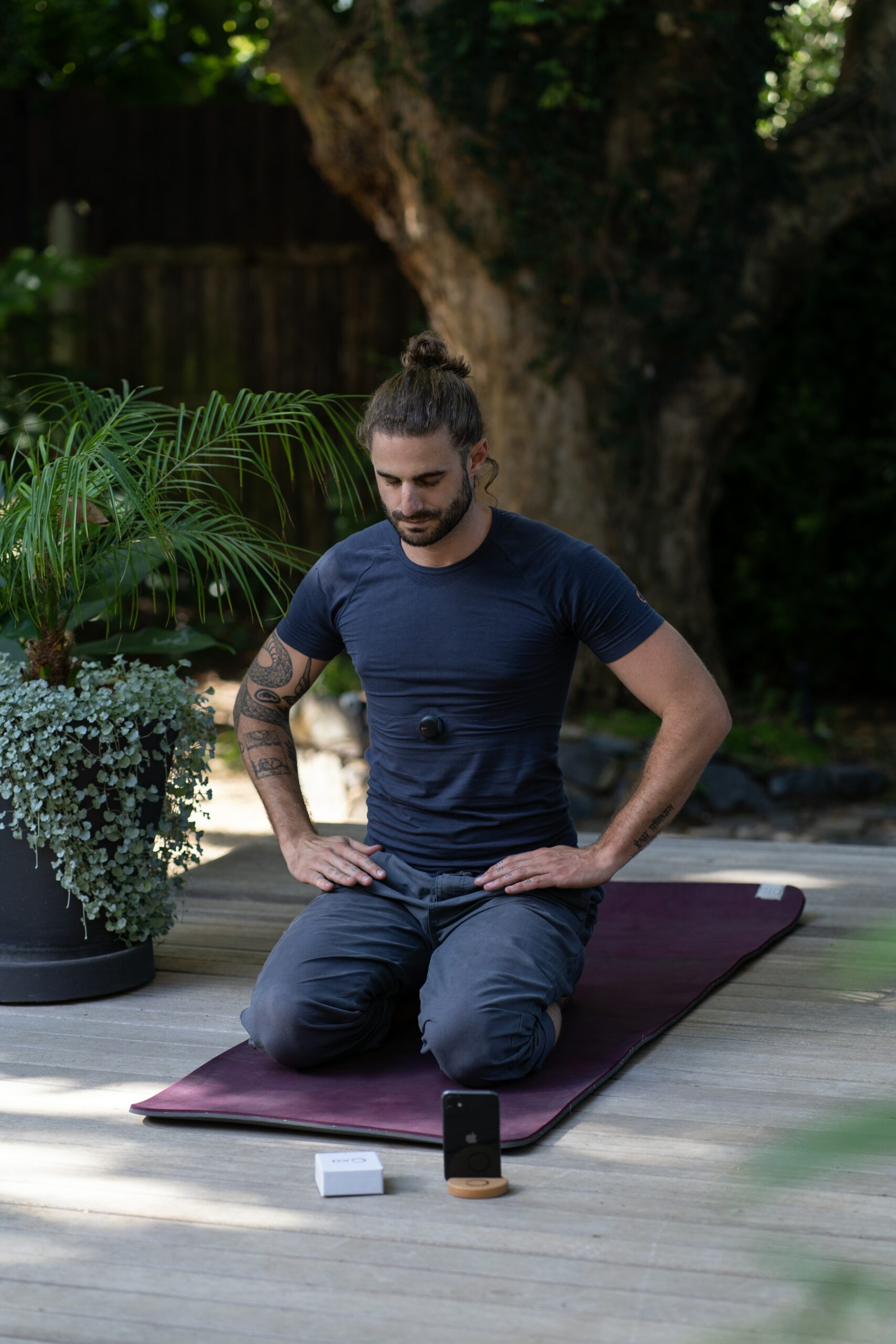
Introduction to the Mind-Body Connection
Have you ever wondered why a simple walk in the park can uplift your mood while a sedentary lifestyle often leads to feelings of lethargy and fogginess? This phenomenon is deeply rooted in the concept of the mind-body connection. Increasingly, scientific studies and health experts are shedding light on the intricate relationship between physical health and mental well-being. The mind-body connection posits that our mental state is directly influenced by our physical health, and vice versa.
According to recent research, individuals who engage in regular physical activity are less likely to suffer from mental health issues such as depression and anxiety. In fact, a study published in JAMA Psychiatry found that exercising for just 30 minutes a day significantly reduces the risk of developing depression. This evidence underscores the critical importance of integrating physical health practices into our daily lives to achieve mental clarity and emotional resilience.
Our blog delves into this fascinating interplay between the mind and body, offering valuable insights and practical tips on how to harness physical health to enhance mental clarity. We will explore the science behind the mind-body connection, discuss the benefits of various physical activities, and provide actionable advice on how to incorporate these practices into your routine. Whether you are struggling with stress, seeking to improve your focus, or aiming to boost your overall well-being, understanding the mind-body connection can serve as a powerful tool in your wellness arsenal.
Join us on this journey to discover how prioritizing your physical health can lead to greater mental clarity and a more balanced life. Are you ready to transform your well-being from the inside out?
The Science Behind Physical Health and Mental Clarity
The relationship between physical health and mental clarity is substantiated by a robust body of scientific evidence. This connection is primarily mediated through biochemical processes involving neurotransmitters, hormones, and blood circulation that directly impact cognitive function and emotional well-being.
One significant area of research identifies the role of exercise in enhancing cognitive abilities. Regular physical activity has been shown to increase the production of brain-derived neurotrophic factor (BDNF), a protein that supports neuron growth and improves brain plasticity. Enhanced brain plasticity facilitates better learning and memory retention, as evidenced in studies published in reputable journals such as Neuroscience & Biobehavioral Reviews.
Moreover, exercise positively affects neurotransmitter balance in the brain. Increased physical activity leads to higher levels of endorphins and serotonin, which play crucial roles in mood regulation. Serotonin, often referred to as the “happiness hormone,” is integral to maintaining emotional stability and combating depression and anxiety. Extensive research, including findings cited by the National Institutes of Health (NIH), underscores this positive correlation.
Another critical component linking physical health to mental clarity is hormonal balance. Regular cardiovascular exercise impacts the endocrine system by reducing cortisol levels, the hormone responsible for stress. Lower cortisol levels result in decreased anxiety and improved focus, creating a conducive environment for better mental performance. Insights from the Journal of the American Medical Association (JAMA) often highlight the importance of regular physical activity in stress management.
Blood circulation also plays a pivotal role in this intricate relationship. Improved cardiovascular health enhances blood flow to the brain, ensuring a steady supply of oxygen and essential nutrients. This increased circulation promotes neuronal function and helps prevent cognitive decline, particularly relevant in aging populations. Peer-reviewed research featured in the Journal of Alzheimer’s Disease provides substantial evidence supporting this mechanism.
Collectively, these scientific insights affirm that physical activities such as regular exercise significantly contribute to improved cognitive function, reduced stress levels, and an overall boost in mood, reaffirming the profound connection between physical health and mental clarity.
Practical Ways to Improve Physical Health for Better Mental Clarity
Maintaining physical health is paramount to achieving mental clarity. A balanced approach to exercise, diet, sleep, and mindfulness can significantly enhance your overall well-being. Here are some practical methods to improve physical health and foster mental clarity.
Aerobic Exercises
Aerobic exercises such as running, swimming, and cycling increase heart rate and improve cardiovascular health. These activities elevate oxygen flow to the brain, which can enhance cognitive function and reduce stress. Engaging in at least 150 minutes of moderate aerobic exercise per week is recommended by health experts to reap these benefits.
Strength Training
Incorporating strength training into your routine not only builds muscle but also boosts mental health. Lifting weights or performing body-weight exercises like push-ups and squats release endorphins, which are known to reduce anxiety and improve mood. Aim for at least two strength training sessions per week for optimal results.
Yoga and Meditation
Yoga combines physical postures with controlled breathing and meditation, making it a holistic approach to mental clarity. The physical aspect improves flexibility and strength, while the meditative practices enhance focus and reduce stress. Even a short, daily yoga routine can significantly improve mental well-being.
Balanced Diet
Nutrition plays a crucial role in mental clarity. A diet rich in fruits, vegetables, lean proteins, and whole grains provides the essential nutrients the brain needs to function optimally. Omega-3 fatty acids, found in fish and flaxseeds, are particularly beneficial for brain health. Avoiding processed foods and excessive sugar can further aid mental clarity.
Adequate Sleep
Quality sleep is indispensable for mental clarity. Aim for 7-9 hours of sleep per night to allow the brain to rest and rejuvenate. Good sleep hygiene practices, such as maintaining a consistent sleep schedule and avoiding screens before bedtime, can enhance the quality of your sleep.
Hydration
Staying hydrated is fundamental to cognitive function. Dehydration can lead to confusion, mood swings, and reduced focus. Aim to drink at least 8 cups of water a day, and more if you are physically active.
Mindfulness Practices
Integrating mindfulness practices with physical activities can further enhance mental clarity. Techniques such as deep breathing, progressive muscle relaxation, and guided imagery are effective in reducing stress and improving mental focus. These practices can be easily incorporated into your daily routine alongside physical exercise.
By adopting these practical tips, you can significantly enhance your physical health and, in turn, achieve better mental clarity.
Real-Life Stories and Testimonials
The relationship between physical health and mental clarity isn’t merely theoretical but is profoundly grounded in real-life experiences. Consider the story of Sarah, a 45-year-old professional who struggled with chronic stress and anxiety. After committing to a routine of regular exercise and a balanced diet, Sarah experienced significant improvements in her mental well-being. Her heightened mental clarity allowed her to navigate work challenges more efficiently and brought a sense of calm to her daily life.
Diverse backgrounds exemplify this mind-body connection, such as John’s experience, a 30-year-old who transitioned from a sedentary lifestyle to one that embraced physical activity and mindfulness. John reported an increased ability to concentrate and cope with social anxiety after incorporating daily yoga and a whole-foods diet. Through gradual yet consistent changes in his physical health, John found renewed focus and mental sharpness, enabling him to thrive in both personal and professional settings.
Additionally, the story of Laura, a retired school teacher, highlights that age is no barrier to enhancing mental clarity through physical health. By integrating light exercises like walking and stretching into her routine, along with prioritizing hydration and nutritious meals, Laura noticed a marked improvement in her cognitive functions and mood. Despite her age, these lifestyle adjustments reinforced the inexorable link between physical health and mental acuity.
These testimonials underscore the universal potential for transformation and the significant impact of physical well-being on mental clarity. They demonstrate that this connection transcends age, lifestyle, and backgrounds, offering hope and encouragement to all. We invite readers to reflect on their own journeys and consider how physical health has influenced their mental clarity. Share your stories and experiences in the comments section to foster a community of support and shared wisdom.












